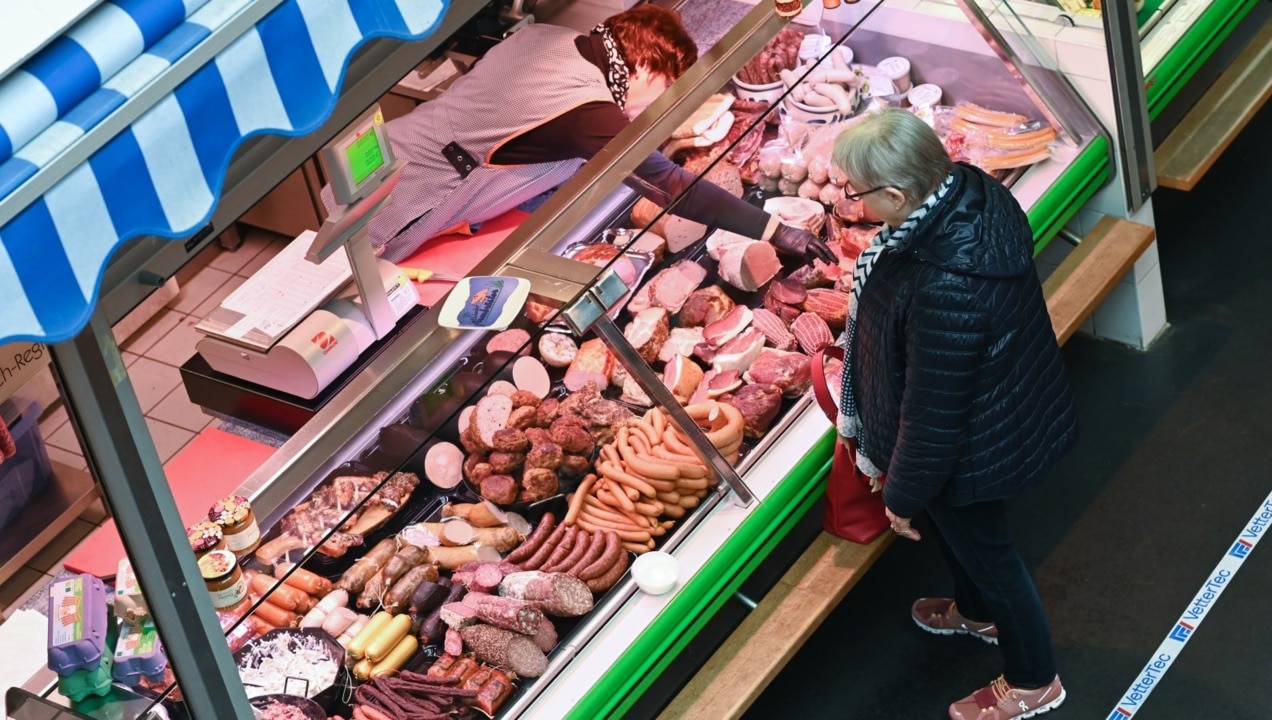Ministers ‘must unite’ to push food exports: Costa boss
Marc Werner has called on the whole federal government, including the Prime Minister, to step up and help fresh Aussie produce get into more international markets.

Costa Group chief executive Marc Werner has called on the federal government to step up action to support exports of fresh produce from Australia.
In an interview with The Australian, Mr Werner, a speaker at The Australian’s Global Food Forum in Brisbane on July 17, said the Prime Minister and ministers for Trade and Agriculture needed to have a united front to lobby against non-tariff barriers preventing Australian exports of produce, such as fresh berries and avocados to countries in the Asian region.
Mr Werner said the absence of an agreement on fruit fly protocols was preventing exports of blueberries and avocados to China and the export of avocados to Japan.
Countries with inferior fresh produce, including those from South America, were able to export to these markets because their governments had reached agreements on export protocols.

“Free trade agreements have been very beneficial for Australian agriculture, including fresh produce growers,” he said. “Over the past 15 years, Costa and many others have benefited from governments of both political persuasions successfully negotiating free trade agreements with Japan, China, US, Korea and India.”
Mr Werner said this had been a big benefit to the citrus industry.
Costa now regularly exports about 70 per cent of its annual citrus crop to countries including Japan, Korea, China and the US.
But Mr Werner said free trade agreements only addressed tariffs, and not non-tariff barriers, including the negotiation of export protocols, which were often related to the treatment of fresh produce for fruit fly. He said the negotiation of these protocols was often left to the Department of Agriculture, as they were seen as technical issues.

Mr Werner said the government needed to take a much more forceful approach to negotiating around non-tariff barriers to exports, with the Prime Minister’s department and Trade department coming in to back the Department of Agriculture.
“The department (of Agriculture) does a great job under difficult circumstances,” he said.
“But these technical negotiations often take many years, and they seemingly do not attract the whole-of-government attention that is given to resolving market access issues for wine, meat, grain and more recently lobster.”
Mr Werner said exports of fresh produce such as berries and avocados did “not seem to warrant” being given “trade priority” status by the government.
“Other countries seem to do it better when it comes to market access for fresh produce, even though their product is inferior to Australian produce,” he said.
Mr Werner said Australia was a global leader in the development of premium blueberries, but Australian producers “have had to sit by over the last decade and watch many other countries with inferior product gain access to China, including Peru, Chile, Mexico, Argentina, Canada and even the US”.
He said Australia currently had access to Japan for West Australian-grown avocados, but not Queensland — where 65 per cent of Australia’s avocados were grown.
The situation was “immensely frustrating” because there was an oversupply in the domestic market, resulting in depressed pricing.
Mr Werners said the avocado industry in Queensland would be significantly assisted if it were able to get access to Japan, one of the biggest importers of avocados.
Mexican-grown avocados had been selling for $60 per tray in Japan, while they were selling for only $18-$20 per tray in Australia.
“If Queensland had access to Japan, then together with the West Australian access, Australia could supply the Japanese and China markets, year round,” he said. “This is something no other country can do.”
Mr Werner said if Queensland avocado producers were able to sell into the Japanese market, they would also be in a better position to negotiate better deals with supermarkets in Australia.
“This would not require any complex regulation or threatened actions and fines, but would make a meaningful difference,” he said.
Mr Werner said a “whole of government” approach was needed to negotiating export protocols for these products in the same way as the government had backed other exporters, such as barley and wine producers.
“We need the Agricultural Minister, Trade Minister, Foreign Affairs Minister and even the Prime Minister, to take up the cause of export market access for Australian-grown fresh produce,” he said.






To join the conversation, please log in. Don't have an account? Register
Join the conversation, you are commenting as Logout